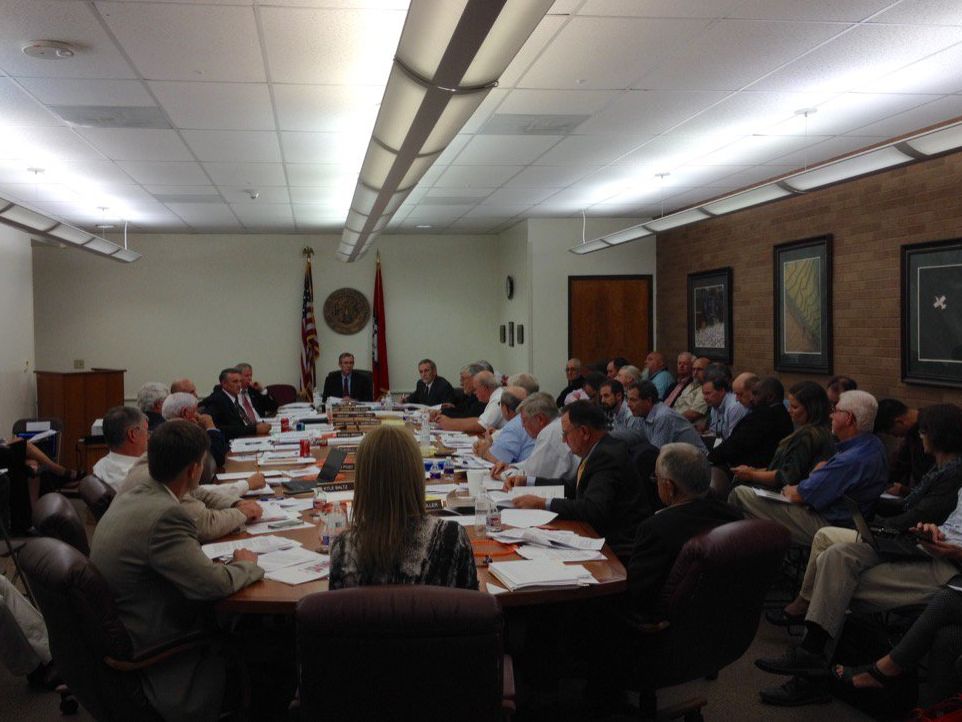WASHINGTON, Sept. 21, 2017 - The Arkansas State Plant Board has recommended that growers not be allowed to apply dicamba from April 16 through Oct. 31 next year, effectively ruling out in-crop use of the herbicide.
The action came Thursday in a unanimous vote at the board's regular quarterly meeting, at which it considered recommendations from a dicamba task force that had recommended the April 15 cutoff date for dicamba use. The board will now take comments for 30 days and hold a public hearing Nov. 8.
The proposed regulations "include exemptions for the use of dicamba in pastures, rangeland, turf, ornamental, direct injection for forestry, and home use," the plant board said in a news release issued after the meeting. "The approved regulations are closely aligned with the recommendations from the Dicamba Task Force and the Plant Board’s Pesticide Committee."
"Following the public comment and public hearing period, the final proposed rule will be forwarded to the executive subcommittee of the Arkansas Legislative Council for final rule approval," the plant board said.
The board also voted to recommend new regulations "establishing notice procedures for requesting additional research and for restricting products beyond EPA approval." Those proposed regulations also will be subject to a 30-day comment period and be the topic of a public hearing at the board's next quarterly meeting on Dec. 12, after which they will be sent to the Executive Subcommittee of the Arkansas Legislative Council for final rule approval.
Arkansas, which has received nearly 1,000 complaints about dicamba-caused plant damage (more than any other state) only allowed use of BASF's dicamba formulation, Engenia, this year -- not Monsanto's Xtendimax -- because University of Arkansas researchers said they were prevented from doing necessary testing on Xtendimax's volatility.
In a petition to the plant board, Monsanto questioned the validity of U-Arkansas research concluding that the volatility of Xtendimax has played a significant role in soybean damage in the state. Monsanto also said that there is no requirement that the state consider U-Arkansas research before approving a product. The company petitioned the board to reject the task force's April 15 cutoff date recommendation and allow Xtendimax to be used next year. The board, however, unanimously rejected Monsanto's petition.
Ty Vaughn, Monsanto's vice president, global regulatory, criticized the board following the meeting for not considering the data EPA considered to approve Xtendimax, which Vaughn said he provided to the board the morning of the meeting. "They weren't interested in looking at the scientific evidence," Vaughn told Agri-Pulse.
He also criticized the board for not allowing growers who want to use the product to have their say. About 300 growers signed on to a letter asking the board to extend the cutoff date until May 25 and require a one-mile buffer for application. "They weren't allowed to speak to that," Vaughn said.
He also said the state should have completed its investigations on dicamba damage before taking action on next season. The company says most of the damage complaints come from eight northeastern counties and Vaughn said "it would be good to know what's going on in those eight counties before banning the product in the entire state."
Asked whether Monsanto would file a lawsuit over the regulations, should they be adopted, Vaughn said Monsanto will be following the process closely and "all options have to be on the table."
Also at the meeting, the board approved changes to its pesticide enforcement regulations, to increase the maximum civil penalty from $1,000 to $25,000 "for egregious violations from applications of dicamba or an auxin-containing herbicide, or any new herbicide technology released after Aug.1, 2017." t also said,
(Photo courtesy University of Arkansas System Division of Agriculture)
#30
For more news, go to www.Agri-Pulse.com.


